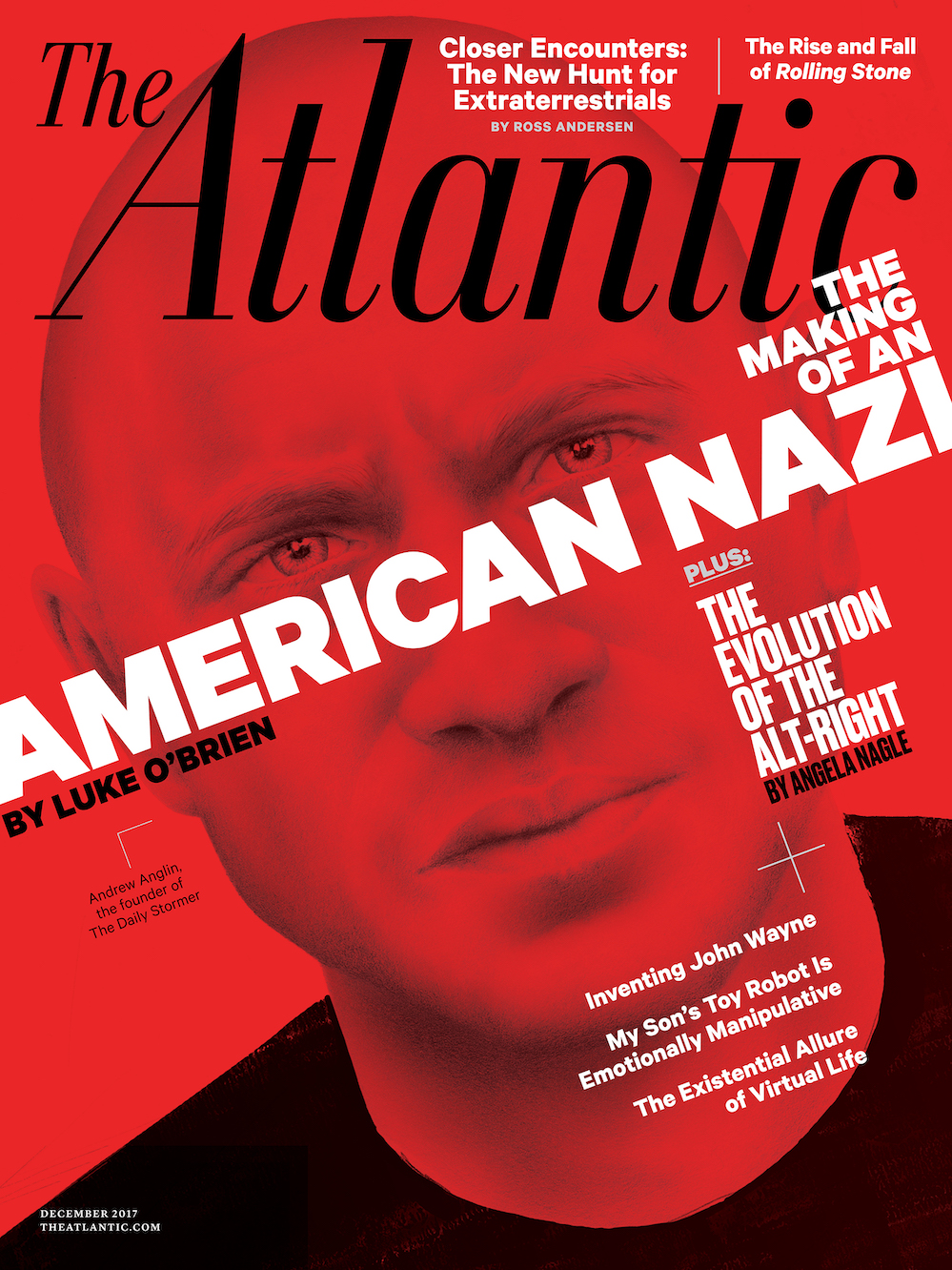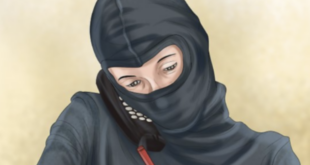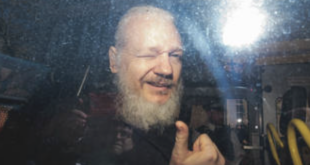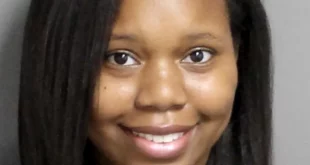holy fuck https://t.co/UaHr7B1hKG pic.twitter.com/kO7DTfvJz2
— Siraj Hashmi (@SirajAHashmi) September 2, 2021
Liberals have pretty much taken the line that any form of tyrannical control is justified by the alleged coronavirus pandemic.
However, some are now looking at Australia and having second thoughts as to whether this maybe goes a little bit too far.
The Atlantic was taken over by extremist Zionists, and no longer resembles what it once was, instead being an aggressive neoconservative and liberal outlet on par with any other such tripe. But they do still occasionally publish things that are serious.
A recent piece in The Atlantic by Conor Friedersdorf is worth looking at, both because of the article itself, which contains a compact view of many of the details of the Australian lockdown (which we’ve been covering in endless individual news bits), and because it shows that even some liberals are starting to get nervous about where this is all headed.
The article is entitled “Australia Traded Away Too Much Liberty,” though I’m not sure he ever definitively reaches that conclusion.
He opens with an appeal to liberal democracy.
In a bid to keep the coronavirus out of the country, Australia’s federal and state governments imposed draconian restrictions on its citizens. Prime Minister Scott Morrison knows that the burden is too heavy. “This is not a sustainable way to live in this country,” he recently declared. One prominent civil libertarian summed up the rules by lamenting, “We’ve never seen anything like this in our lifetimes.”
Up to now one of Earth’s freest societies, Australia has become a hermit continent. How long can a country maintain emergency restrictions on its citizens’ lives while still calling itself a liberal democracy?
Australia has been testing the limits.
He then continues with examples of the tyranny.
After explaining that everyone is locked inside the country indefinitely, he gives an account of the most heinous infringement thus far, which is the tracking app that turns your home into a prison.
Intrastate travel within Australia is also severely restricted. And the government of South Australia, one of the country’s six states, developed and is now testing an app as Orwellian as any in the free world to enforce its quarantine rules. People in South Australia will be forced to download an app that combines facial recognition and geolocation. The state will text them at random times, and thereafter they will have 15 minutes to take a picture of their face in the location where they are supposed to be. Should they fail, the local police department will be sent to follow up in person. “We don’t tell them how often or when, on a random basis they have to reply within 15 minutes,” Premier Steven Marshall explained. “I think every South Australian should feel pretty proud that we are the national pilot for the home-based quarantine app.”
Then there is the curfew.
Other states also curtailed their citizens’ liberty in the name of safety. The state of Victoria announced a curfew and suspended its Parliament for key parts of the pandemic. “To put this in context, federal and state parliaments sat during both world wars and the Spanish Flu, and curfews have never been imposed,” the scholar John Lee observed in an article for the Brookings Institution. “In responding to a question about whether he had gone too far with respect to imposing a curfew (avoiding the question of why a curfew was needed when no other state had one), Victorian Premier Daniel Andrews replied: ‘it is not about human rights. It is about human life.’”
That’s one of the most frightening statements imaginable, as it declares that any freedom can be suspended if it is believed by the government – or if the government simply claims to believe – that suspending this freedom can save lives.
I’ve argued consistently that whether or not suspending freedom saves lives or not cannot possibly be a basis for whether or not the government is allowed to suspend freedoms. There are many different arguments there, and many different analogies – not least of which, pointing to the number of lives that would be saved by banning cars. We’ve been all up and down that.
What I do not think that opponents of the regime should be doing is making a big point of the fact that lockdowns don’t work. Maybe that is worth pointing out, but the underlying argument should always be that it doesn’t matter if they work or not, the government simply does not have a right – based on the foundational philosophy of Western Civilization – to strip you of your rights based on trying to protect you.
They will of course hop around on this, and claim that you are “putting others in danger,” and make various comparisons. But there was never any law that prevented people from sheltering in place in their homes out of fear of disease. If people want to lock themselves inside, they have that right – I don’t think anyone has ever claimed they don’t. But the government doesn’t have a right to force people to stay in their homes.
Friedersdorf goes on to talk about the outlawing of protests and the fact that the military is being deployed to arrest people en masse if they violate the lockdown rules, and then goes on to pose the question: can Australia continue to claim to be a “liberal democracy” and be taken seriously?
Australia is undoubtedly a democracy, with multiple political parties, regular elections, and the peaceful transfer of power. But if a country indefinitely forbids its own citizens from leaving its borders, strands tens of thousands of its citizens abroad, puts strict rules on intrastate travel, prohibits citizens from leaving home without an excuse from an official government list, mandates masks even when people are outdoors and socially distanced, deploys the military to enforce those rules, bans protest, and arrests and fines dissenters, is that country still a liberal democracy?
Enduring rules of that sort would certainly render a country a police state. In year two of the pandemic, with COVID-19 now thought to be endemic, rather than a temporary emergency the nation could avoid, how much time must pass before we must regard Australia as illiberal and unfree?
I don’t think it is an issue of “how long.”
Granted, there are certain “emergency powers” including martial law that a government can have in a free society, but they cannot be indefinitely extended, and there must be an immediate threat of a total collapse of the entire system of order. That is the only justification of “emergency powers” – an actual emergency that threatens the breakdown of the entire society. It cannot possibly be about providing extra safety to individuals – that is always going to be tyranny.
Even if you believe the coronavirus was originally an “emergency,” when Neil Ferguson and Anthony Fauci were claiming that 10% of those who were infected would die, we’ve known since at least April of 2020 that this is not the case. Even if it was the case, it would simply be a reality that people would have to deal with, and make their own decisions about. After the initial claims about the virus were proved false, it was clear that society would not collapse as a result of the virus, and therefore there was no longer any potential “emergency.”
It should be noted that historical regimes that are considered to be tyrannical never said “we’re taking your freedoms to control you.” They always said they were taking freedoms for the sake of offering some benefit to the population – in particular, safety.
Friedersdorf goes on about the issue of the length of the lockdown, suggesting that it wouldn’t have been so bad if they’d hurried up with their mass vaccination agenda and then let people return to normal. I do not agree with that at all, obviously.
He closes with this:
Because of its geography, Australia is a neighbor and an observer of authoritarian countries as varied as China and Singapore. But its own fate, too, may turn on whether its people crave the feeling of safety and security that orders from the top confer, or whether they want to be free.
But is it dependent on what people crave?
Of course, I think in a “liberal democracy” it is supposed to be impossible, based on checks and balances, to devolve into a hardcore security state, and at the very least, it is not supposed to be dependent on popular will.
But if in Australia the popular will was against the virus regime, what would that mean exactly?
It seems to me that much more than being dependent on what people crave, the future of Australia is dependent on whether people are willing to stand up against a militarized police state that has unleashed the military against them.
Surely, no one can take elections seriously in such a country, so the only way a popular sentiment against this regime could be expressed is through non-cooperation, which, as we’ve seen from the response to protests, requires people to go out and be beaten in the street, arrested, fined, and potentially imprisoned by the militarized police state.
I certainly think it is possible for people to “crave freedom” and yet not be willing to be beaten and imprisoned in a mass movement for freedom. That means that the deciding factor has nothing to do with a craving at all.
What’s more, this problematic issue of consent within a system of totally censored media arises again: when you live in a country with a completely controlled media, where people who disagree with the state publicly are subjected to arrest (something which was not mentioned in The Atlantic piece but is happening on a large scale in Australia), can you actually put much on the opinions of the masses?
It used to be a standard liberal narrative that China couldn’t be a free country, and that their elections are irrelevant because they have censorship. Since mass censorship became such a fundamental part of the operations of Western societies over the last half-decade (to the point where China seems like a haven of free speech), you very rarely see this issue discussed.
But it’s a fair question: can a people without any access to a free media ever be considered actually free? If you add in the fact that people are being locked inside their homes, and don’t even have access to conversation with others, then I think it becomes much more obvious that no, it is not possible to perceive those people as capable of making rational decisions about the direction of their society.
I think it is interesting that The Atlantic is asking this question about Australia (or rather, that The Atlantic is allowing someone to publish an opinion piece about it), but I do not find the conclusions very meaningful at all.
Ultimately, you can only have a meaningful discussion about this if you are willing to consider that the government of Australia – or any other country which has used the alleged pandemic as an excuse to strip people of their freedoms – might not be acting entirely innocently on what it believes to be the best interests of its citizens. I believe that you would have to consider the possibility that in fact there is a drive to implement a tyranny in the West by elite actors who are using the supposed pandemic as an excuse to take actions that they could not otherwise possibly get people to go along with.
Secondarily, you should ask a slightly easier question: whether even if the initial actions were taken innocently, whether or not a militarized police state can ever maintain its innocence, or if such a system appeals to the worst instincts of man, and can quickly spiral into something very dark.
I have consistently asserted that everything that is happening in Australia is going to eventually be implemented in Europe and America, so I would very much think it would make sense to be having this conversation about Australia before that happens. However, we can’t have that discussion, because of the above mentioned level of censorship we are currently suffering under.
I can be featured on the cover of The Atlantic, for an article I refused to give comment to, accusing me of mental illness, homosexuality, drug abuse, self-harm, sex with underage girls, short stature, neo-Nazism, and various other nasty things, but I most definitely cannot publish an op-ed in The Atlantic.
In fact, I am completely banned from any form of expression, beyond my website which is registered to a country that doesn’t exist anymore. I am banned from all social media and every other public platform, banned from running a mailing list, delisted on Google, and banned from holding a “.com” or “.org” website domain.
Clearly, not everyone who opposes the current Western order is as censored as I am, but the fact that I’m this censored means that anyone else can be as censored as I am if they are perceived to be creating the same kinds of problems that I was perceived to be creating for the ruling establishment.
This means that there cannot be any real public discussion of anything at all.
When I became the first person to be completely banned from all forms of political expression, for political reasons, I said: “this is the beginning of a slide towards tyranny, because you cannot have freedom if you do not have freedom of speech.” I had no idea that it would happen this fast, or in such a brutal way, but here we are.
I do not think anything can stop what is coming. It’s interesting to have liberals at least willing to acknowledge that we might be headed somewhere dark, but it will not stop what is happening. We are now strapped in and locked down, and we are going to experience the full weight of the deepest kind of hell that men can create before anything gets better.
 Daily Stormer The Most Censored Publication in History
Daily Stormer The Most Censored Publication in History



